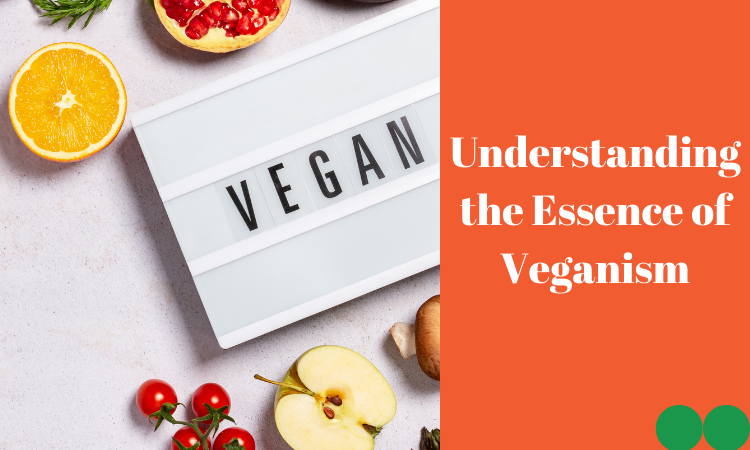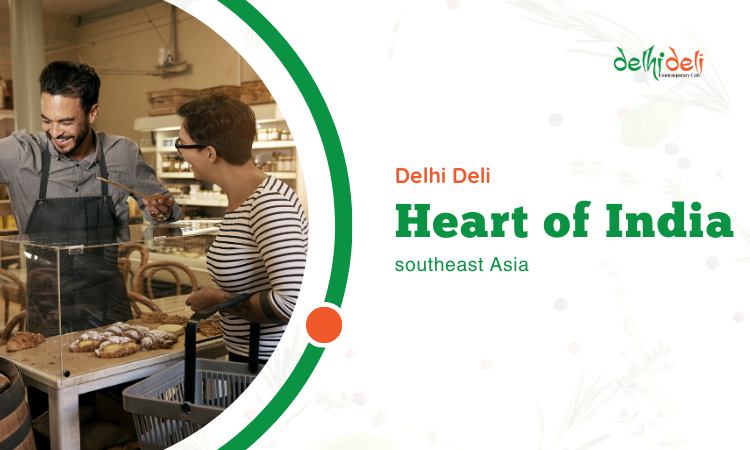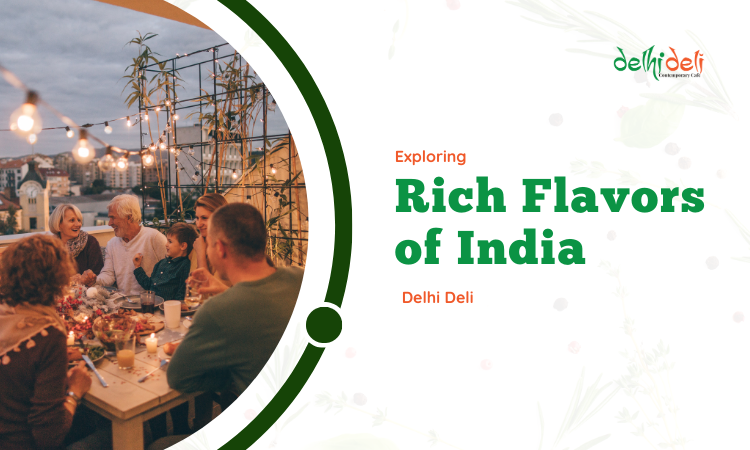Understanding the Essence of Veganism
Introduction:
As more people adopt a vegan diet for ethical, environmental, and health-related reasons, veganism has attracted a lot of attention in recent years. But what does being vegan genuinely entail? Together, we will examine and understand the essence of veganism as well as its remarkable impact on our overall health and well-being.
Fundamentally, veganism is the refusal to use or consume any goods that come from animals in one’s diet or way of life. The main source of nutrition for vegans is plant-based food, including fruits, vegetables, grains, seeds, and legumes. Vegans try to live in harmony with the environment and animals by abstaining from animal products such as dairy, eggs, meat, and even honey.
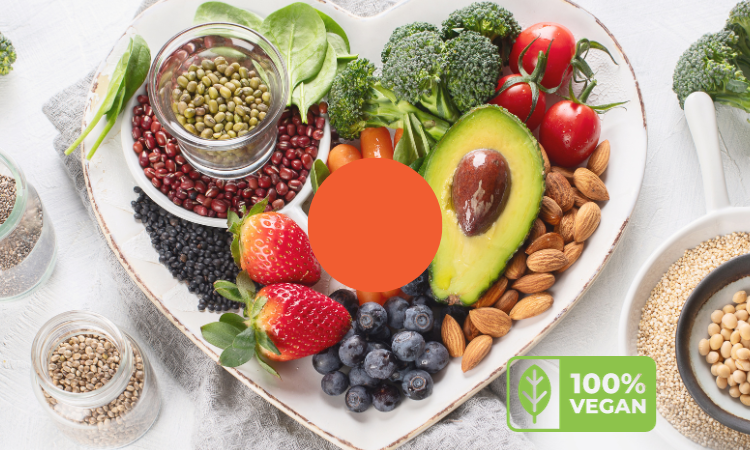
The Vegan Diet's Revolutionary Potential for Optimal Health and Well-Being
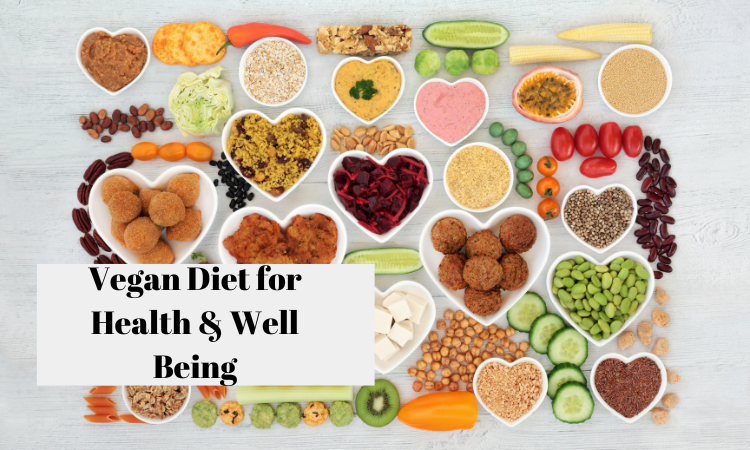
Adopting a vegan lifestyle has several advantages that go well beyond moral concerns. A plant-based diet not only has genuinely transforming impacts on human health and wellness, but it also helps to lessen environmental harm and animal cruelty. Let’s discuss the Vegan Diet’s Revolutionary Potential for Optimal Health and Well-Being.
One should never undervalue the effects of a vegan diet on physical health. According to research, diets based mostly on plants typically have lower levels of cholesterol and saturated fats, which lowers the risk of heart disease and high blood pressure. People can benefit from the vast array of vitamins, minerals, and antioxidants that are necessary for the best possible operation of the body’s systems by substituting whole grains, legumes, fruits, and vegetables for animal products.
Additionally, studies have demonstrated that switching to a vegan diet can help control and avoid chronic illnesses including diabetes, obesity, and some types of cancer. Plant-based diets have been shown in numerous studies to help control weight and enhance insulin sensitivity, which lowers the risk of Type 2 diabetes.
A vegan diet can help boost one’s sense of wellbeing on an emotional and mental level. The brain produces mood-regulating neurotransmitters like dopamine and serotonin more readily when nutrient-dense plant-based foods are consumed. Furthermore, a more stable mood and improved mental clarity can result from consuming fewer processed foods and chemical additives, which are frequently present in non-vegan diets.
It’s clear that adopting a vegan diet can have a significant impact on our general wellbeing and health. Consuming plant-based diets to fuel our bodies helps create a more compassionate and sustainable planet in addition to enhancing our own vitality. A look into the particular nutrients that are abundant in a vegan diet and how they support a healthy lifestyle may be found in the upcoming section.
"The Essential Nutrients for a Vegan Diet"
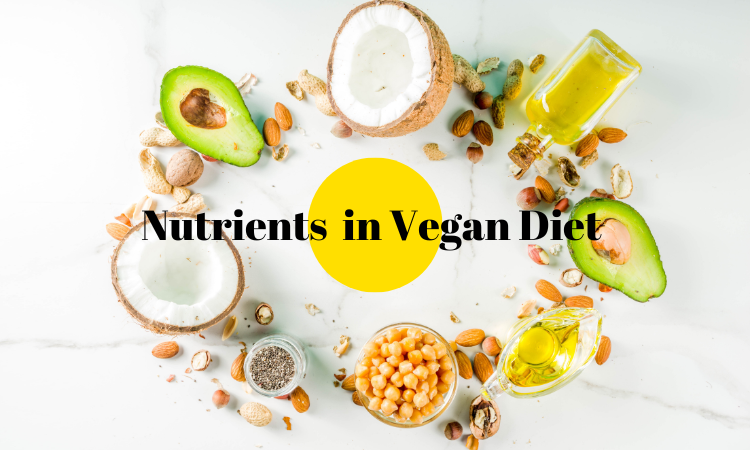
When embarking on a vegan diet, it is crucial to ensure you are meeting all your nutritional needs. While there might be common misconceptions about the adequacy of a vegan diet, rest assured that when properly planned, it can provide all the essential nutrients. Protein-rich legumes, calcium-fortified plant milks, and leafy green vegetables are excellent sources of protein, calcium, and iron. Omega-3 fatty acids can be obtained through foods like walnuts, flaxseeds, and chia seeds. Lastly, make sure to incorporate fortified foods or supplements of vitamin B12 or iron if needed. With proper planning, a balanced vegan diet ensures optimal nutrient intake for overall well-being.
The Rising Popularity and Influence of Plant-Based Diets
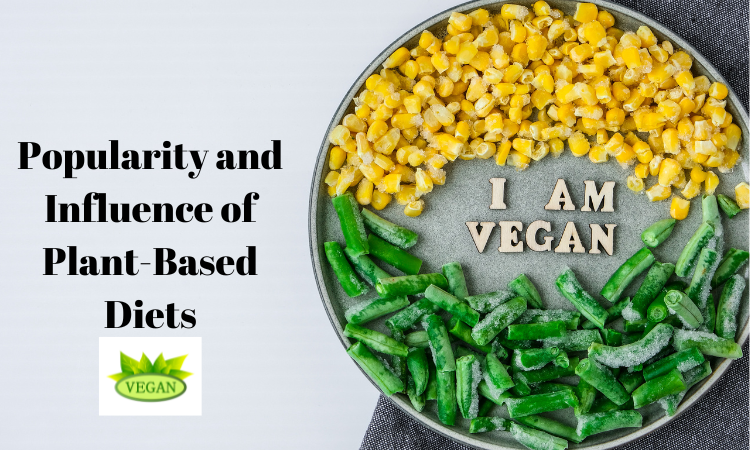
In recent years, plant-based diets have gained significant traction, ushering in a paradigm shift within the food industry. This seismic movement towards a more sustainable and ethical approach to eating is not only driven by growing concerns about climate change and animal welfare but also by the undeniable health benefits associated with consuming plant-based foods.
Food industry players have swiftly responded to this changing landscape, with an influx of innovative plant-based alternatives hitting the market. From plant-based meats to dairy-free milks and vegan desserts, consumers now have more options than ever before. As awareness continues to spread and demand rises, the food industry is adapting, making plant-based options more accessible and appealing to a wider audience.
Restaurants and big-name food corporations are also jumping on the bandwagon, introducing plant-based menu options and plant-forward initiatives. These efforts not only cater to the increasing number of individuals embracing plant-based diets but also serve as a testament to the power of consumer choices.
The influence of plant-based diets goes beyond the shelves and menus of our favorite eateries. It is transforming the entire food production chain, from farm to table. Farmers are diversifying their crops to meet the demand for plant-based ingredients, while food companies are investing in research and development to improve the taste, texture, and nutritional profile of their plant-based offerings.
As we witness this monumental shift in the food industry, it’s evident that plant-based diets are here to stay. With health, sustainability, and compassion driving their momentum, we can expect even more exciting advancements and widespread acceptance in the years to come.
Vegan Sweet Tooth: Luxurious Dessert Recipes for the Plant-Based Culinary Professional"
Do you have a sweet tooth, but you don’t want to break your vegan diet? No need to search any farther! We’re presenting a few delicious plant-based dessert recipes that will satiate your sweet taste. These sweets will definitely delight, so prepare your taste buds!
1. Chocolate Avocado Mousse with a Rich Taste:
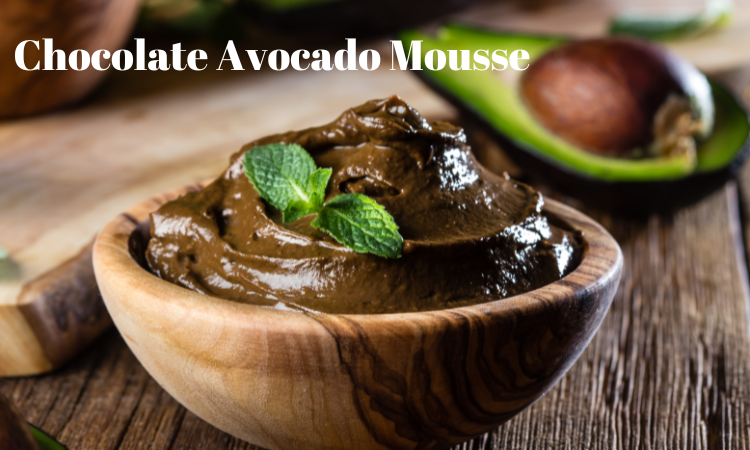
Ingredients:-
– Two ripe avocados as an ingredient
-One-fourth cup cocoa powder
-One-fourth cup maple syrup
– One tsp of vanilla extract
Guidelines:
- -Add the avocados, cocoa powder, maple syrup, and vanilla extract to a blender or food processor.
- -Purée until velvety and creamy.
- -Spoon the mousse into glasses or bowls for serving.
- -An hour or so before serving, place in the refrigerator.
- Optional: Add more chocolate powder or berries to the top for a more decadent touch.
2. Banana Bread Vegan:
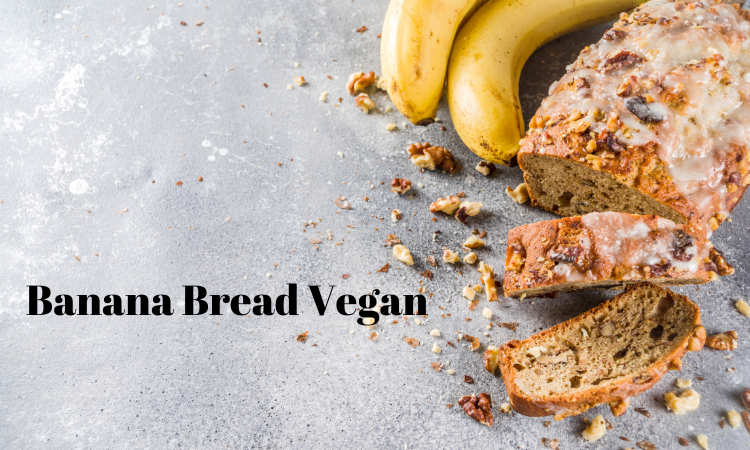
Ingredients:
– 3 mashed ripe bananas
– 1/4 cup melted coconut oil
– 1 teaspoon vanilla extract – 1/4 cup agave nectar or maple syrup – 1 1/2 cups whole wheat flour
– One tsp baking soda
– One-half teaspoon of cinnamon
– One-fourth teaspoon of salt
Guidelines:
- Set the oven temperature to 175°C, or 350°F.
- Combine the mashed bananas, vanilla extract, maple syrup, and coconut oil in a big basin.
- Add the salt, baking soda, cinnamon, and whole wheat flour and sift. Mix thoroughly until fully incorporated.
- Transfer batter to a loaf pan that has been oiled.
- A toothpick put into the center should come out clean after baking for 50 to 60 minutes.
- Let the banana bread cool down before cutting into slices and serving.
3. Parfait with Chia Seed Pudding:
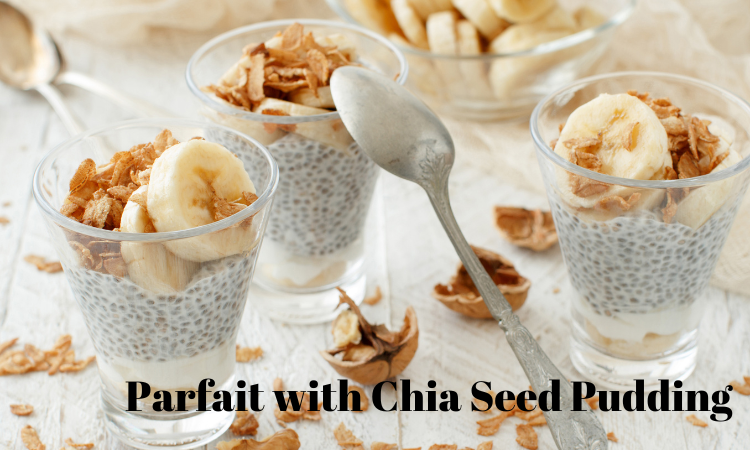
Ingredients:
– One-quarter cup chia seeds
-One cup almond milk, one tablespoon agave nectar or maple syrup, half a teaspoon of vanilla flavor, and fresh fruit and nuts for garnish
Guidelines:
- Place the almond milk, vanilla essence, maple syrup, and chia seeds in an airtight jar or mason jar.
- Make sure the chia seeds are properly submerged by giving them a good stir.
- To allow the chia seeds to gel, refrigerate the mixture for at least two to three hours, preferably overnight.
- After the pudding sets, arrange fresh fruit and almonds on top of it in individual serving cups.
- Eat the parfait right away or store it in the fridge until you’re ready to serve.
4. Cookies with Chocolate Chips but Without Gluten:
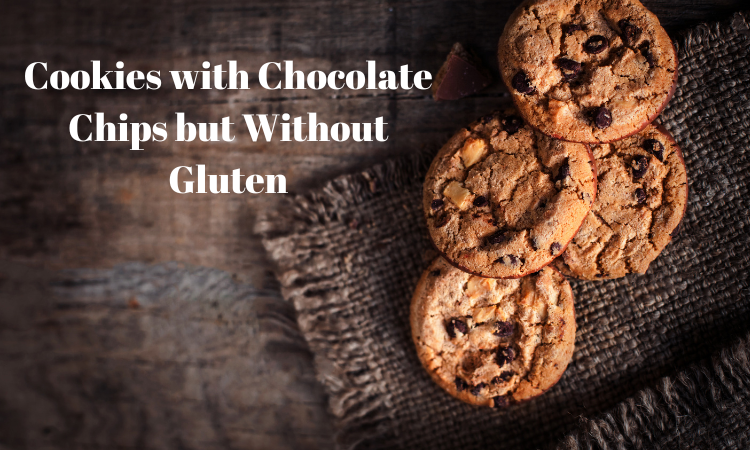
Ingredients:
-cup almond flour ·
-1/4 cup melted coconut oil
– 1/2 teaspoon baking soda
– 1/4 cup agave nectar or maple syrup
– 1 teaspoon vanilla essence
– 1/2 cup vegan chocolate chips
– 1/4 teaspoon salt
Guidelines:
- Set the oven’s temperature to 350°F, or 175°C.
- Put the almond flour, baking soda, salt, maple syrup, melted coconut oil, and vanilla extract in a mixing bowl.
- Stir in the plant-based chocolate chips.
- Form the cookie dough into tablespoon-sized balls and arrange them on a baking sheet that has been prepared.
- Use the back of a spoon to gently flatten each dough ball.
- Bake for ten to twelve minutes, or until the edges of the biscuits are brown.
- After letting the cookies set on the baking sheet for five minutes, move them to a wire rack to finish cooling.
You may eat guilt-free thanks to these five incredible vegan dessert recipes! These dishes will fulfill your sweet tooth and provide you with the goodness of vegan ingredients, whether you’re a seasoned plant-based eater or just eager to try something new. Grab your supplies, head to the kitchen, and let your taste senses revel in the deliciousness of these plant-based treats! Enjoy yourself!
Enjoy Delicious and Simple Vegan Recipes to Satisfy Your Taste Buds
How Your Plate Affects the Environment: How Veganism Can Help Fight Climate Change
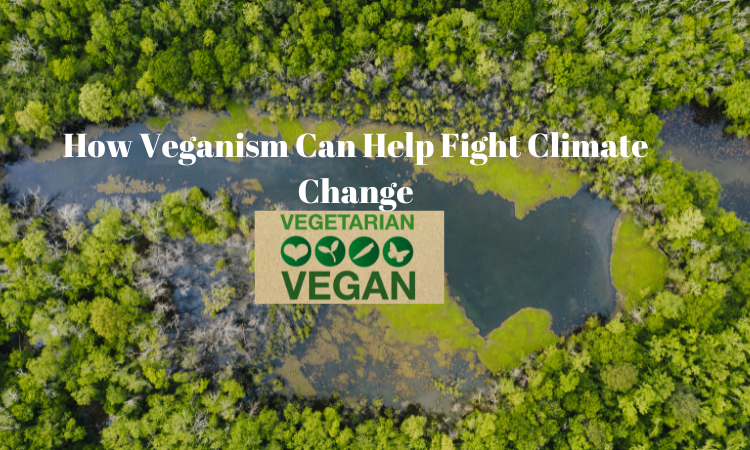
Comprehending the Connection between Dietary Decisions and Global Warming
One crucial aspect of climate change that is frequently disregarded is what we eat. Even though it might not seem like much, the ecosystem is greatly impacted by the food choices we make. Deforestation, water pollution, greenhouse gas emissions, and biodiversity loss are all impacted by the production of meat, dairy, and other animal-based products. This section looks at how our food affects the environment and shows how becoming vegan can help fight climate change.
Plant-Based Diets Can Help Reduce Greenhouse Gas Emissions
A significant portion of greenhouse gas emissions worldwide—roughly 15%—are caused by animal husbandry. A powerful greenhouse gas called methane is produced in vast quantities by livestock rearing. The processing and distribution of animal products, the management of manure, and the production of animal feed all increase the carbon footprint. On the other hand, because they consume less resources and produce fewer greenhouse gases, plant-based diets have a far smaller carbon footprint.
Retaining Environment and Fighting Deforestation
Deforestation is mostly caused by animal agriculture, which clears large tracts of land for the growth of animal feed crops and cattle grazing. Not only does the destruction of forests increase CO2 emissions, but it also results in the loss of important habitats and biodiversity. People can lessen their reliance on animal products and, thus, lessen the strain on forests and other valuable natural resources by switching to a vegan lifestyle.
Water Conservation and Pollution Prevention
ater usage in the meat and dairy industries is well known. Abundant freshwater supplies are depleted in the process of watering livestock and irrigating crops for animal feed. Besides, animal excrement finds its way into waterways frequently, polluting them and harming aquatic life. By lowering the demand for animal agriculture, adopting a vegan lifestyle can significantly contribute to the preservation of water resources and the avoidance of pollution.
It is obvious that a major part of the battle against climate change is our eating choices. We can minimize greenhouse gas emissions, protect natural resources, and conserve water by switching to a vegan lifestyle. Selecting plant-based substitutes is a powerful move toward a future that is more sustainable for the earth and future generations as well as for ourselves.
Conclusion:
In conclusion, understanding the essence of veganism goes beyond dietary choices; it encompasses a holistic way of life that promotes optimal health, well-being, and environmental sustainability. By embracing a plant-based diet, we not only nourish our bodies with essential nutrients but also contribute to the fight against climate change. As the popularity and influence of veganism continue to rise, let us explore the luxurious dessert recipes that cater to our vegan sweet tooth while staying true to our plant-based culinary journey. Together, we can create a healthier, more compassionate world for ourselves and future generations.
